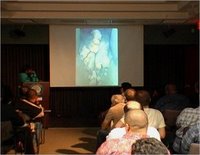 i just served as discussant for an american sociological assocation session on incarceration and the labor market and as guest editor for a set of upcoming criminology & public policy papers on the effect of criminal background checks. in each case, some fine sociologists, economists, policy school folks, and criminologists weighed in on research and policy questions surrounding employer access to criminal records.
i just served as discussant for an american sociological assocation session on incarceration and the labor market and as guest editor for a set of upcoming criminology & public policy papers on the effect of criminal background checks. in each case, some fine sociologists, economists, policy school folks, and criminologists weighed in on research and policy questions surrounding employer access to criminal records.
the stark differences in disciplinary approaches make for stimulating exchanges. for example, in his forthcoming essay, harvard economist richard freeman argues that employers should have greater access to criminal history and post-conviction information. i’ve long taken the opposite view, citing the poor quality and biases in much arrest and conviction information, the proliferation of trivial records for traffic and misdemeanor offenses, and larger concerns about encroachments on individual privacy rights.
nevertheless, professors freeman and holzer cite theory and emerging evidence suggesting that cloaking such information may have ugly unintended consequences. in the absence of reliable signals about applicants’ criminality, the argument goes, employers will rely instead upon statistical discrimination — screening out applicants from groups thought to be characterized by high crime rates. the upshot is that young african american males without records could face greater discrimination if employers lose access to criminal record data.
if i remember my undergraduate economics courses correctly, more information is generally better than less information — and perfect information is best of all. i buy this argument to a point, but would suggest instead that public release of a more uniform, standardized, and parsimonious set of criminal history information might be the best policy course.
here is a list of the papers:
american sociological association session:
Session Organizer: Bruce Western (Harvard University)
*Collateral Costs: The Effects of Incarceration on Employment and Earnings Among Young Men – Harry Holzer (Georgetown University)
* Sequencing Disadvantage: Race, Criminal Background, and the Diminishing of Opportunity –Devah Pager (Princeton University)
*Incarceration Length, Employment, and Earnings –Jeffrey Kling (Brookings Institution)
Discussant: Christopher Uggen (University of Minnesota)
criminology & public policy papers (volume 7, issue 3, august 2008)
*Uggen, Christopher. 2008. Editorial introduction: The Effect of Criminal Background Checks on Hiring Ex-offenders. Criminology & Public Policy.
*Stoll, Michael A. and Shawn D. Bushway. 2008. The effect of criminal background checks on hiring ex-offenders. Criminology & Public Policy. This issue.
*Freeman, Richard. 2008. Incarceration, criminal background checks, and employment in a low(er) crime society. Criminology & Public Policy. This issue.
*Western, Bruce. 2008. Criminal background checks and employment among workers with criminal records. Criminology & Public Policy. This issue.


 just about every prison has a hole, a box, or a
just about every prison has a hole, a box, or a 




